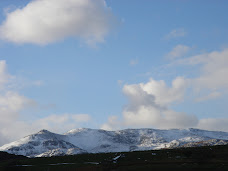Transport is the only sector of the UK economy to have carbon emissions that are higher now than they were in 1990.
The upward pressure on car use will be even more acute if bus fares continue to rise seven times more than the cost of motoring as they have in the past decade (Change in the cost of travel in the last ten years).
This graph, from the RAC Foundation is truly scandalous:
https://www.racfoundation.org/data/cost-of-transport-index
Despite the focus of much research on local commuter journeys, it is motorways, trunk roads, railways and airlines where energy demand volumes are growing. These long distance journeys account for a small share of trips, a larger share of travel distances and energy use, and an even larger share of climate impacts.
a future in which people can and will use their cars less, not more.
people can beneficially reduce their car use
Abandoning plans to build more road capacity
tax will be restructured so that car use pays its full environmental costs and is not cheaper to use than public transport, or even flying.
Electric vehicles (EVs) will encourage more car use, not less as it is much cheaper per mile to use a battery electric vehicle than a petrol or diesel one
The upward pressure on car use will be even more acute if bus fares continue to rise seven times more than the cost of motoring as they have in the past decade
increasing share of larger and heavier petrol, diesel and even plug-in hybrid vehicles
Encouragement and enablement of more lift sharing and car sharing. Cars are only in use for 3% of an average day and have no passengers for 62% of trips. Fewer cars, not just newer cars, will be needed to cut both engine and manufacturing emissions and sharing can suit trips which public transport does not
















No comments:
Post a Comment